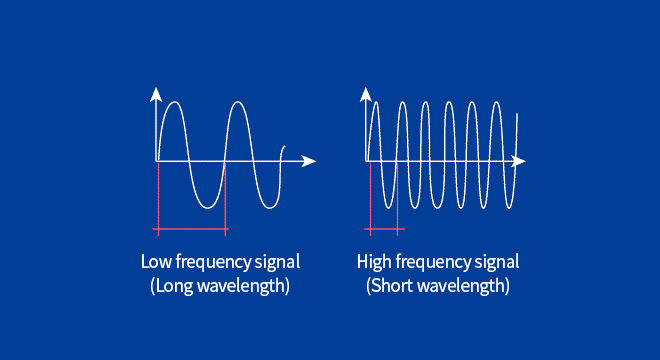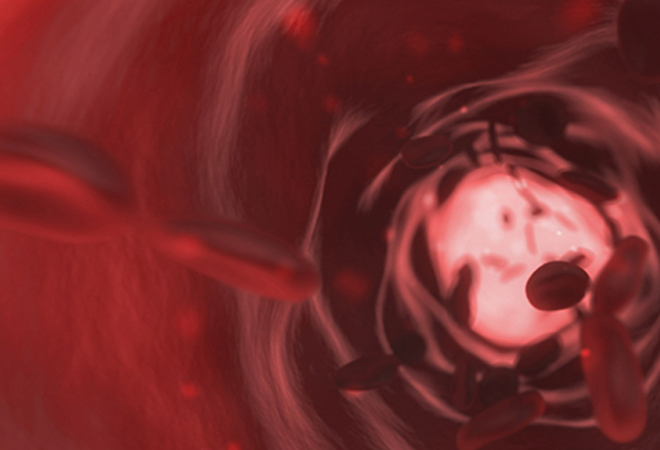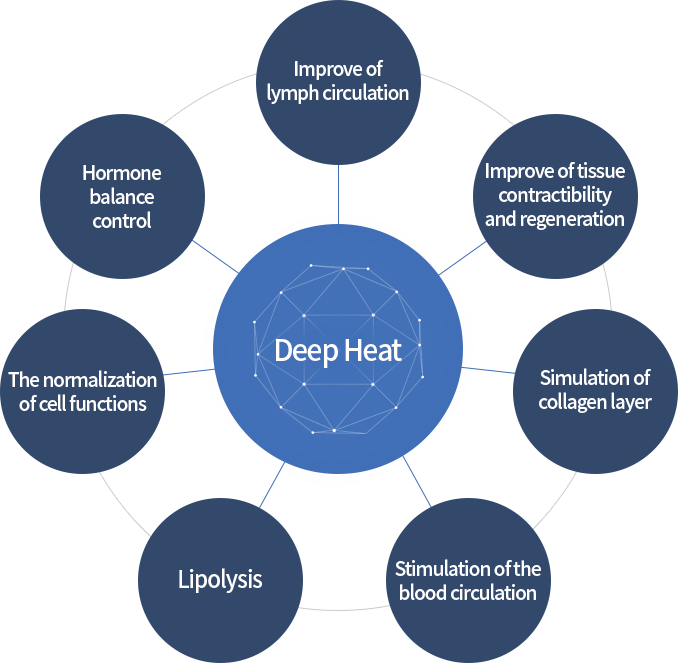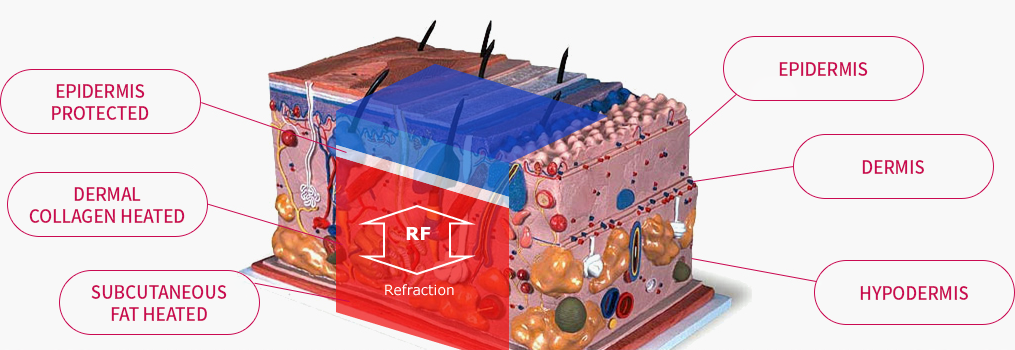Deep Heat (E.D.H)
E.D.H (Endogenous Dermal Heat)

Division of frequency
Deep heat melts down fat, discharges body wastes by increasing lymph and blood circulation, stimulates and produces collagen and elastin, and increases expansibility of fibrillary collagen tissues.
When electrical energy is applied, molecules consisting tissues vibrate and cause friction whenever the direction of the electric current alters. In the meantime, bio-heat is generated by movements of rotation, collision, and twist.
Such a high-frequency energy converted into bio-energy increases temperature of the tissues, enhances cell functions, and increases blood flow rate. When the local temperature of tissues increases over 40 degrees, arteries and capillaries are expanded by direct effects, defense mechanism is improved due to increases blood flow rates, and ultimately blood circulation and metabolism are enhanced. Increased blood flow rates in capillaries by the generation of deep heat are 4~5 times higher during a resting phase.
Thermal effect
Metabolic Reaction
Van’t Hoff’s law : Metabolic rate – increases 2-3 (2.5) times as the temperature increases by 6℃
Vascular Effect
Increase of the tissue temperature
Increase of blood in capillary vein
Increased capillary pressure
Control of the skin blood amount
Neurotransmitter : Histamine-like substance – Axon reflex – Spinal reflex
Muscle blood flow control
Metabolic Regulation
Physiochemical Effect
Bactericidal effect
- Low bacteria growth rate
- Destroy of microorganism Homeostasis
- Immunity to Infection
Improvement of body fluid flow
- The negatively charged plasma proteins/li>
- Stimulate negative pole to active electrode
- Reduce edema by rebound phenomenon of body fluid

Pain-relieving Effect
- Electric stimulus intercepts the transmission of action potential
- Nerve block and pain relief
- Secreted beta-endorphin, serotonin, norepinephrine and dopamine relieve pain
- Improved arterial circulation and extended blood vessel increase the oxygen supply to physical tissues and decrease the acidification.
- Catabolite resorption increases the venous blood supply and relieves edema of inflammatory reaction.
- Improved cell-membrane permeability promotes the metabolite transport.
- Wound healing reaction is promoted.
- Stimulation of immune system and decrease of active oxygen
Thermal Effect
Neuromuscular Effect
Increase of the muscle temperature → Decrease of Ⅱ group nerve fiber excitement discharge, increase of the excitement discharge of the ib fiber of GTO ⇒ Decrease of –MN discharge → Decrease of the vitalization of nervous extrafusal fiber Increase of the temperature of the skin over muscles → Decrease of -MN vitalization → decrease of the discharge of the group II discharge ⇒ decrease of -MN vitalization → Alleviation of muscle contraction.
Blockage of the pain – Contracture-Pain.
The tissue temperature increases by 1.0℃ in chronaxie, increase of rheobase, and in changing the nerve conduction speed – the nerve conduction speed increases by 1.8-4m/s.

Connective tissue Effect
The characteristic of connective tissue – change of viscosity elasticity
⇒ Increase of extensibility , When stretched at the local temperature of 40-45 ℃, maximum extension without tissue damage is caused.


Cooling SHOT
When the surface of the skin is cooled down, there are many positive effects. First, it can generate deep and high level of deep heat without any hot pain.
In the case of patients who sensitively react to the stimuli and experience pain due to nerve compression, or who are sensitive to high temperature it wasn’t easy to keep the temperature of the deep heat in the visceral fat high for a certain length of time. However, we made it possible with enhanced cooling effects.
By cooling down the layers above the above illustration, the layers of the epidermis layer and layers of the subcutaneous fat (Hypodermis) layer are prevented by blocking the reflection of the simbuyeol layer. By blocking the drainage through pore openings, you can boost the elasticity of collagen (Collagen), boost your skin’s elasticity, and produce and release the subcutaneous fat of the subcutaneous fat.

